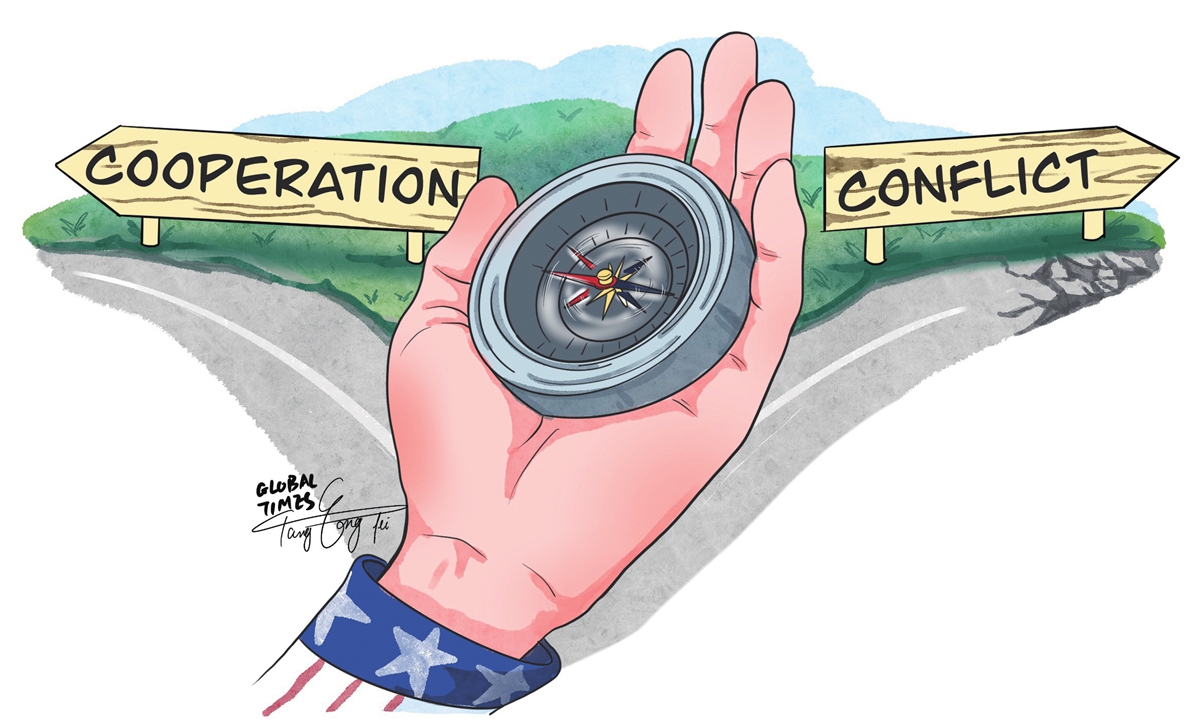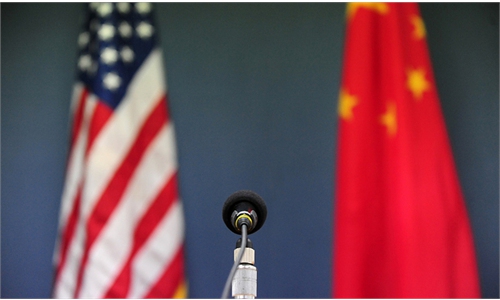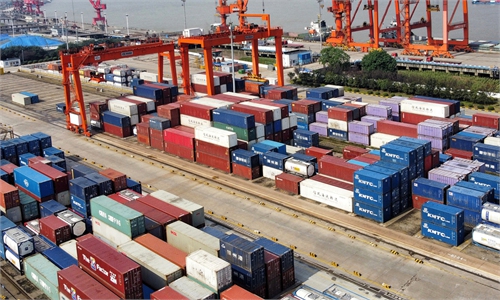COMMENTS / COLUMNISTS
White House can’t have it both ways in trade with China

Illustration: Tang Tengfei/GT
After months of what his administration called a review period on its trade policy toward China, US President Joe Biden appears poised to make some adjustments to his predecessor Donald Trump's toxic China trade policy.
However, even as his cabinet officials have been reaching out to the Chinese side and hinting at the likely removal of Trump's punitive tariffs, Biden is apparently seeking to keep in place a range of policies to contain China's technology rise.
On Tuesday, Biden said that the US government will extend a Trump-era measure that bars US investors and business from investing in Chinese companies that Washington deems have ties with the Chinese military. Chinese officials have repeatedly expressed displeasure with what they call a political suppression that is aimed at stifling Chinese tech companies.
Additionally, in a move that has been widely described as political hostage taking, the US Commerce Department coerced global semiconductor chip manufacturers to turn over crucial business data to Washington. The US officials said the companies would submit the data on a "voluntarily" basis and the move was aimed at improving global supply chain transparency, which is an outright lie.
In China and other countries, the US government's bullying act has been criticized as a blunt mockery of the word "voluntary" and that it was another maneuver aimed at collecting sensitive data connected to the global chip industry, while potentially targeting Chinese companies.
The Biden administration's series of irregular moves this week came, even as US officials have in recent weeks openly expressed willingness to pursue dialogue with Beijing, and address trade issues with China.
Last week, US Treasury Secretary Janet Yellen said that the US may consider lowering some punitive tariffs imposed by Trump on Chinese products. Yellen argued that the tariffs tend to increase US domestic prices for consumers and businesses, and reducing the tariffs would have a "disinflationary" effect, according to Reuters.
In what has been viewed as a crucial speech on US trade policy toward China under Biden in October, US Trade Representative Katherine Tai offered an apparent rejection of the Trump administration's economic "decoupling" approach, saying that such a move is unrealistic, and she suggested a more constructive "recoupling".
Such remarks have been received positively in China and have kicked off several rounds of high level trade talks between Chinese and US officials, where both sides have provided positive sentiment over the potential easing in trade tensions, at least in certain areas in which they can compromise and made a deal.
Last week, China's state-owned oil giant Sinopec Corp signed a contract on with the US' Venture Global LNG to buy 4 million tons of liquefied natural gas (LNG) annually for 20 years, which is said to be the largest long-term LNG deal ever signed between China and the US. China's increasing purchase of US energy products is an important part of the phase one trade agreement and the LNG deal has been viewed by some as the latest sign of China's implementation of the agreement.
However, the Biden administration actions this week lay bare that it wants to have it both ways in tackling the trade issues with China -- Seeking relief and concessions from China in areas it desperately needs China's cooperation, while keeping intact punitive measures that aim to undercut China in crucial areas pertinent to China's technological development.
Such a bad-faith approach will not bode well for bilateral trade ties. Even though Chinese officials have been engaging with US officials in a pragmatic and constructive manner, they are definitely fully aware of such a calculation on the part of the US and will handle it in a proper manner. The US can't hope for cooperation in areas that benefit itself, while continuing to undermine China's core interests in other areas.
The bottom line: Biden can't have it both ways.
The author is a senior editor at the Global Times. bizopinion@globaltimes.com.cn




